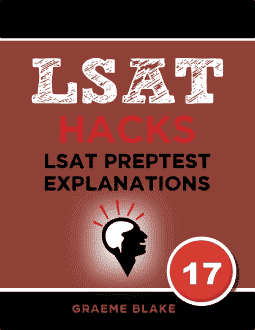QUESTION TEXT: Public policy dictates the health risks the public routinely…
QUESTION TYPE: Parallel Reasoning
CONCLUSION: Statistical arguments about safety are used to deflect public fears while contributing little to the debate. Ultimately public policy dictates the health risks the public routinely takes.
REASONING: Seatbelts are given as an example. It is true that wearing one makes a driver safer. But a public policy of encouraging driving leads to an overall higher death rate even with seatbelts.
ANALYSIS: This is a good argument (assuming that statistics are generally used in the same way as seatbelt statistics.)
Policymakers cherry-pick the statistic about seat-belts. “Wear one, you’ll be safer.” Policymakers neglect to point out that their driving policies make us less safe overall.
The example served as an illustration of the conclusion. A statistic was given. The statistic turned out to be misleading once we were given the context.
The correct answer needs two things: a statistic and context that shows that the statistic is misleading.
___________
- CORRECT. This is it. One misleading statistic is given to make us think that nuclear power is safe. The larger context shows that nuclear power is unsafe.
- This statistic is potentially misleading. It only talks about accidental deaths whereas the conclusion is about all sources of death. But this doesn’t exactly parallel the argument because we don’t know if this statistic is being used to mislead us from the truth. We don’t actually know the truth here.
- This statistic isn’t being used to mislead us.
- This is just a statistic in isolation. We don’t know where it clarifies things or is tricking us. Are smoking and chemical workplaces the only two factors we should take into account?
- This could be correct or the statistic could be out of context. It’s hard to know.
Recap: The question begins with “Public policy dictates the health risks the public routinely”. It is a Parallel Reasoning question. Learn more about LSAT Parallel questions in our guide to LSAT Logical Reasoning question types.


Leave a Reply